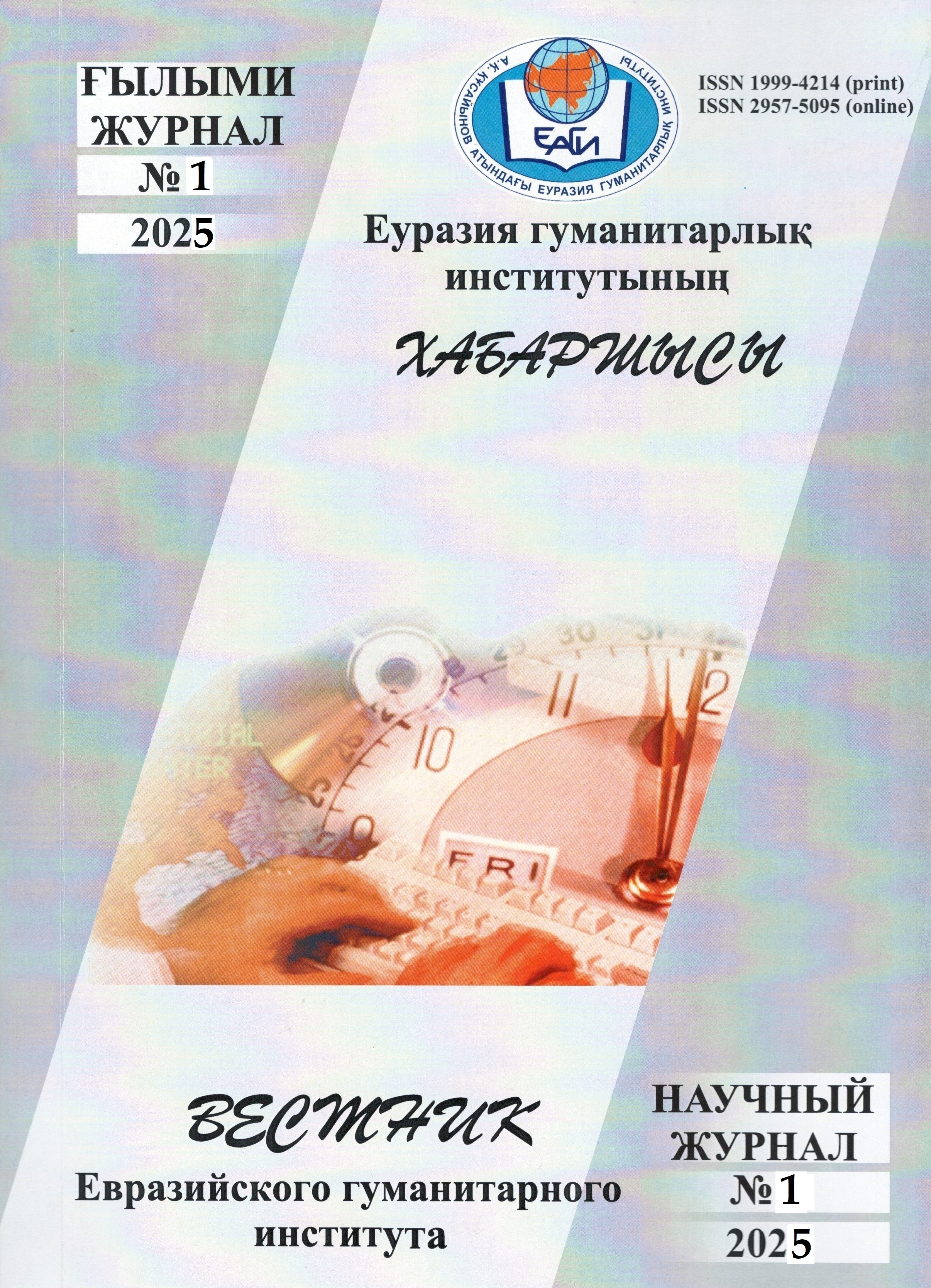RELIGIOUS SITUATION IN THE COLONIAL PERIOD AND THE EPIC «NAZYM SIYAR SHARIF» BY THE POET SHADI
DOI:
https://doi.org/10.55808/1999-4214.2025-1.11Keywords:
religious education, poetry, religious saga, Kazakh literature, colonialism.Abstract
The religious themes glorifying Islam became prominent in Kazakh literature during the late 19th and early 20th centuries. The primary reason for this was the intensification of the Tsarist government’s colonial policies. These policies were implemented alongside the mass settlement of peasants on Kazakh lands, further reinforcing control over the local population and advancing spiritual colonization and baptism efforts.
To counter the activities of the colonizers, a “Muslim movement” emerged in the Kazakh steppe. Mosques were opened, madrasas were built, and written propaganda on religious topics gained popularity. Works celebrating legends about the life of the Prophet and other religious figures became widespread. It is evident that during this period, religious and educational works in the Kazakh steppe were employed to benefit the nation.
A significant contributor to this book poetry school was the religious educator and poet Shadi Zhangiruly. Initially, Shadi received a religious education at the Shayan madrasa under Seyitakhmet Ishan and later became a murid for his son, Appak Ishan. This article examines the religious and educational legacy of the poet Shadi.
Our article analyzes the spiritual colonial policy of the Tsarist government and the religious and educational legacy of the poet Shadi, particularly, the epic “Nazym Siyar Sharif”, which was written against that policy. It also analyzes the spiritual connection between Shadi and his mentor, as well as his influence on the poet’s creative path.


